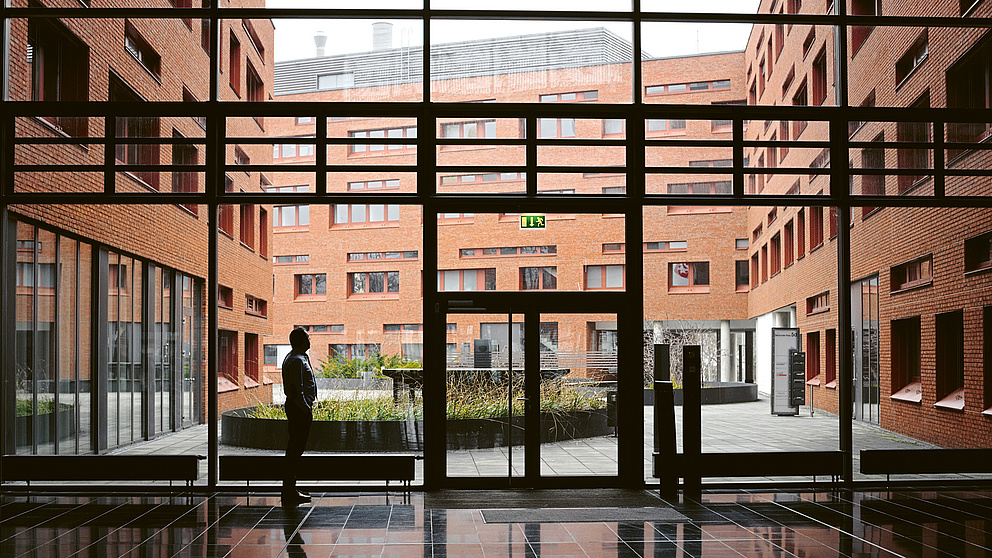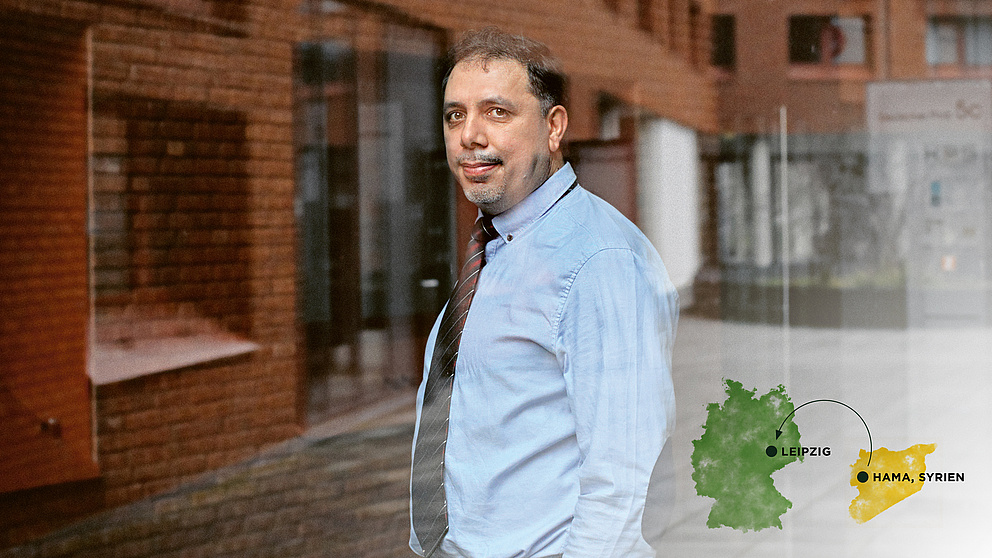Jump to the content
- {{#headlines}}
- {{title}} {{/headlines}}

Philipp Schwartz Initiative
Their home countries are blighted by war, their freedom of research is curtailed or they are persecuted: in many parts of the world, scientists and scholars are in danger. The Philipp Schwartz Initiative helps researchers who have fled their countries to find their feet at German universities and research institutions.
I am from Hama, a charming city straddling the Orontes River in the middle of Syria between Damascus and Aleppo, where I spent much of my life as a kid and adult. Since my early days, I have been passionate about scientific research. Therefore, after graduating from Al-Baath University’s Faculty of Veterinary Medicine in Hama, I worked at the faculty’s Central Laboratory for Research and Disease Diagnosis, where I was involved in several Syrian-Japanese cooperation projects aimed at the investigation and surveillance of epidemiological animal diseases in Syria. Simultaneously, I pursued my postgraduate studies in veterinary medicine. Later on, I received a scholarship to be enrolled in a doctoral course at Nippon Veterinary and Life Science University, Tokyo, Japan. After completing my Ph.D. in virology in 2012, I worked as a postdoctoral researcher at the National Institute of Infectious Diseases in Tokyo. Feeling a responsibility to share my knowledge and experiences with my junior colleagues back home, I had always planned to return to Syria. Unfortunately, this was not possible because of the catastrophic war that tore the country apart. My latest memories about the beautiful country go back to 2009. I have now been away for 12 years. Nothing can replace home, but there need to be options for a better future.
Nothing can replace home, but there need to be options for a better future.
After exploring options and opportunities, I could not find a better new home than Germany that enjoys a reputation for hospitality, accepting others and equality. Luckily, I was able to obtain a visa to the country with my wife and son in 2013. I had no doubt that I could start over here and integrate into society as I was familiar with the country from earlier short study visits back as an undergraduate, along with a family connection through my grandfather who had worked for 40 years in Hamburg. However, as everywhere else, a new start is not easy, but determination and ambition are the keys to success.

Dr Mahmod Muhsen
Country of origin:
Syria
Scientific field:
Veterinary Medicine
Host institution:
Universität Leipzig
Sponsorship Philipp Schwartz-Initiative:
07/2016 – 06/2019

My first applications for a job, fellowship or even an internship at veterinary medicine faculties were unsuccessful until I received positive feedback from Professor Gottfried Alber, the head of the Institute of Immunology at the University of Leipzig. Professor Alber showed tremendous kindness, not only by agreeing to host me at his institute but also by promising to help me find a suitable position. I was overjoyed and realized that a new journey had just begun. While immersing myself in my research at my new place of work, I was fortunate enough to obtain a fellowship under the Philipp Schwartz Initiative, which offered me a chance to continue at the university. During that time, I was able to improve my knowledge of scientific German and to pass all the exams required for veterinary medicine approbation, as well as become an immunology specialist. I have been working now for eight months as a veterinarian and representative laboratory manager at a big diagnostic laboratory in Leipzig.
Enjoying culture while building a new life: People may think it is hard or fun to speak four completely unrelated languages such as Arabic, English, German and Japanese. The language of research is mainly English, but of course, I enjoy learning the language and discovering the culture of a country where I’m spending a lot of time. As a father of three children (8, 6, and 2), who are socializing with their German friends, I enjoy discovering a new level of culture and language that is not always available to adults born and raised in a different part of the world. Now I am glad that I have been able to build a life in Germany, and the hope for a better future will never fade away.
Reported by Carola Hoffmeister

